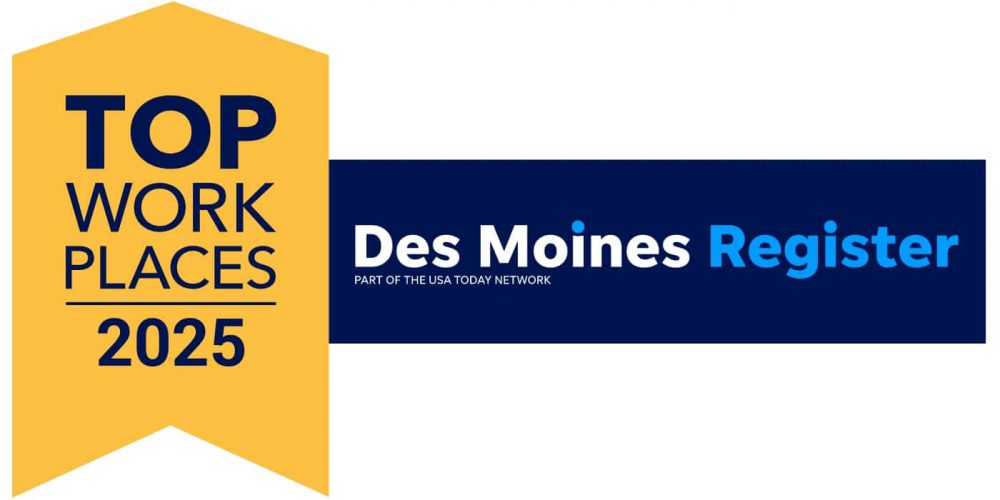Zirous is thrilled to announce that it has been recognized…
As the Director of Corporate and Human Relations at Zirous, one of my main responsibilities is recruiting and interviewing. I’ve seen great candidates that understand how to find and land a job – and they all work at Zirous now! Unfortunately, I’ve also seen many not-so-great examples. I’ve compiled a list of tips on how to navigate the complicated interview process which also lets you into the mind of an interviewer. So, would you like to land your dream job? Follow these five simple steps.
1. Network. I know, I know. I said simple steps. Networking is simple for some yet anxiety-ridden for others. Some of us in the technology field are introverts. We’d rather go to the dentist than ‘work a room’ of strangers. It doesn’t have to be strangers, though. In fact, it shouldn’t be. Your network is closer than you think. I was at one of my kid’s doctor’s appointments when I found out our pediatrician’s son works in IT and is looking for a job in Java Development. I hire Java Developers! Small world. Most small talk usually covers the ‘So, what do you do for a living?’ topic. This is a simple way to network. Talk to people you know and talk to people you meet in social situations. People love to help and employers love employee referrals. If you would like more on the topic of networking, Suzanne Lucas has a great networking article here.
2. Resume. Actually, putting together a great resume isn’t that simple. It requires spell check, formatting, pretty fonts, spacing… oh, and did I mention thought? Yes, put some thought into it. In fact, put a lot of thought into it. Resumes are not one size fits all. Recruiters see dozens, sometimes hundreds of resumes each week and there are no simple tricks to make your resume stand out in the stack. But, if you can describe what you are good at, what kind of job you’re seeking and why an employer should select you in a quick synopsis at the top of your resume, that recruiter may take the time to look at the rest of your resume. Then make sure the rest of your resume is easy to read (layout is important), everything is spelled correctly and the content stays relevant. I also highly recommend a cover letter. Your resume describes your career history, your cover letter describes you. This is a chance to introduce yourself. Take it. First impressions are important.
3. Interview Prep. First impressions are important. Did I say that already? Your resume and cover letter are one type of first impression, but your screening interview – be it on the phone or in person – is crucial. The recruiter is the gatekeeper at every company. They decide who moves on to the next interview. Take time to prepare for this interview. Research the company, research key people, if you can, research the job opening and have a list of good questions. If a recruiter engages you in small talk, reciprocate. No, I don’t need to know that your dog ate a roll of toilet paper last night and you’re still cleaning up the mess this morning. But, I’d love to hear your day is going well and then hear you ask me about mine. Why? Because I need to know that you can do this with customers and colleagues. It’s not just about your technical skills. Practice summarizing your career history and answers to some commonly asked interview questions. Make sure you can be concise but not short on your responses. It’s a balancing act. Too lengthy of answers makes me worry you’re an overtalker. Too short of answers makes me worry you don’t know what you’re talking about. I’m going to ask you if you have any questions. This is an interview question. Literally. This isn’t me being polite. I’ve asked the barista at Starbucks a couple of questions about a new drink I’m considering getting over my go-to vanilla latte and this was only about my morning coffee – not my dream job. Hold off on questions about salary and benefits. I know it’s important but it should wait until later in the interview process. Always repeat this step for all subsequent interviews.
4. Communicate. But I’m an introvert, remember? In study after study employers rank communication along with problem solving among the top skills they’re looking for in employees. Communication comes in many forms. As a recruiter, I have many touch points with candidates. Usually I call first to schedule a phone interview and then send a follow up confirmation email. I find that strong candidates are usually very responsive. I’ll get an email back to confirm my confirmation. After our phone interview I might get a thank you note. Once I schedule the next interview I’ll get another confirmation back from them and sometimes a, “Thank you for setting all of this up” line. Geez, she sure wants a lot of thank yous. But, it’s really not the thank yous I’m looking for, though, it’s the open communication. I know if that person can communicate well with me, they’ll likely do the same with our customers. Keep this communication professional. No smiley faces, text-like abbreviations, etc. Save that for when you get the job – and even then – save that for your closest colleagues in appropriate situations.
5. References. Simple you say. My resume has had ‘References Upon Request’ at the bottom of it for years. Done. But do you actually have references in mind? Do you know their phone number, email, current employer and availability? Most importantly, do you actually know what they will say about you? I hope so, because I’m going to call them. I’m going to ask them probing questions and I’m going to judge you on their responses. If I can’t get ahold of them I’m going to assume you didn’t give them a heads up and tell them how important this job is to you. If they have questionable things to say about you, I’m going to question your fit for the position and your judgement in using them as a reference. Don’t take your references lightly. Make sure you know how they feel about your work, your character, etc. Ask them if you don’t know. Make sure they know you’re using them as a reference and they should be expecting a call and understand their availability. This is usually the final, important step in landing your dream job.
Perhaps my opening sentence was misleading. Getting the job you want is not simple. It’s a lot of work. The best things in life are worth working hard for, though. Especially a dream job.




Great article Beth! I would agree on how important you network is to your job search. It is amazing how helpful your network can be to help you find what you are looking for.
Every state has a state system set up for exalmpe in Texas we’re known as the Texas Workforce Center’s. The Center’s are contracted by the state or the Texas Workforce Commission to provide services like those you’ve mentioned. Find your local one and get these services for free. Someone is collecting a paycheck to provide the pubic with the services you’re looking for. Best of luck to you!
I haven’t worked at waralmt but a second interview is a good sign.Either they’ll ask you more questions and have you fill out more paperwork and/or they’ll give you your schedule/uniform etc.Good luck!